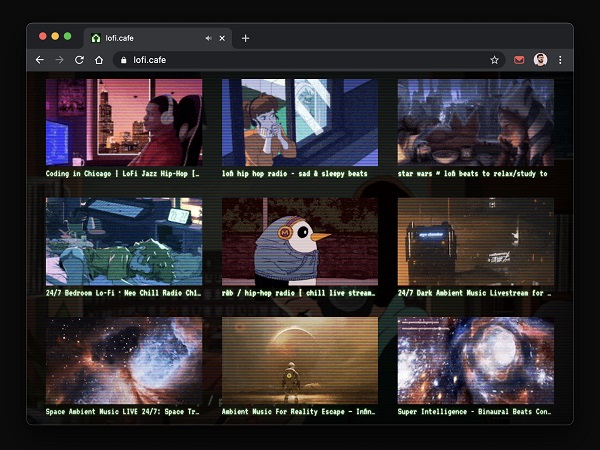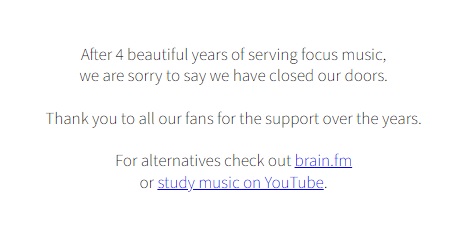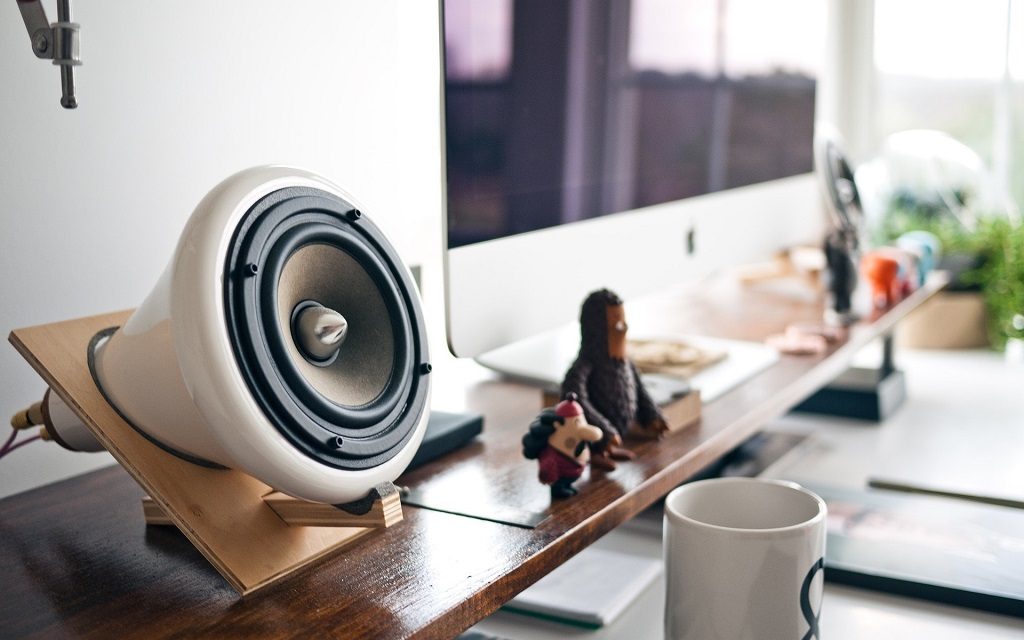Updated: October 7, 2022
When silence is not an option when working from home or needing to study, try giving Lo-Fi Music a chance to help you focus by blocking out unwanted distractions.
Working from Home (WFH) can produce anxiety, loss of focus and low productivity for people who either prefer in-person interactions with their colleagues or more private spaces to achieve an optimal work environment. Likewise, children who are unaccustomed to isolated, distance-learning are equally susceptible to decreased concentration and poor problem-solving ability, as a result of their changed environment.
With a number of people in a single residence all attempting to accomplish their normal daily routines, it has become almost impossible to ignore the distractions and ambient clutter competing for the brain’s attention.
How to Focus When Silence is Not an Option
Though we recognize there are schools of thought that believe silence is the optimal environment for work requiring deep concentration, in this article we explore the common reality when silence is simply not an option. How can you stay focused and on-task while distractions abound around you?
Enter Lo-Fi, or Low Fidelity Music and other digital technologies designed to improve the work and school-at-home experience through a genre of tech known as “productivity apps”, powered by neuroscience.
Table of Contents
- The Attention Drainage Effect Theory
- What is Lo-Fi Music?
- The Benefits of Lo-Fi Music
- Does Lo-Fi Music Help You Study?
- Popular Lo-Fi Music Channels
- Leading Lo-Fi Music Apps
- How to Pronounce Lo-Fi
- Related Articles
To learn how to improve your home’s acoustical environment be sure to read:
To improve your mental acuity through better rest, also see:
To improve your work space at home, also see:
The Attention Drainage Effect Theory
Although music affects individuals in different ways, the basic concept is explained in the theory of Attention Drainage Effect which occurs when distractions cause diminished attention capacity or unconscious “drainage” when performing a single task.
Music Therapy can provide stimuli to sort out noise or distractions by engaging areas of the brain involved in concentration, thus allowing improved focus on a single task. In short, music engages areas of the brain, both prefrontal and parietal cortex, involved with cognitive functions, such as memory, attention, thought and consciousness.
Protecting the Quarterback Analogy
A simple analogy would be a football game. On passing plays, the quarterback must concentrate on finding an open receiver downfield, while avoiding members of the defense who are attempting to violently sack him. Fortunately, the quarterback can rely on his offensive linemen to block the highly “distracting” defensive lineman in pursuit.
The offensive linemen, in essence, are the “music” that blocks disruptive defensive linemen, which enables the quarterback to focus safely on completing a successful pass further down the playing field.
Taking Ad Hoc Questions from the Media Analogy
Another analogy, would be a public figure taking ad hoc questions from barking members of the media. The person needs to lock onto a specific person, voice and question, while mentally blocking a cacophony of competing shouts.
Similarly, even as our brains are continuously bombarded with sensory stimuli at home, dogs yapping, cell phones ringing, children yelling, we have the ability to selectively focus on a single task, if we can somehow block these intruding distractions.
Lo-Fi Music
What is Lo-Fi?
Lo-Fi (think the opposite of “Hi-Fi”, as in “low fidelity”), is a music production quality that has often been disregarded as “imperfections” or elements of performance that are technically flawed. Interestingly, these same flaws can produce various positive, neurophysiological effects on the brain that can actually help improve concentration and stimulate brain activity.
Lo-Fi has often been defined as:
“The inclusion of elements normally viewed as undesirable in professional contexts, such as misplayed notes, environmental interference, or phonographic imperfections (degraded audio signals, tape hiss, and so on)”.
The main building blocks of a lo-fi track are a boom-bap drum, environmental noise (think hissing and record scratching) and jazzy instrumental elements, which combine to create “audio blocking” of distracting background noise.
The Benefits of Lo-Fi Music
As if magically, the compounding, imperfect traits of lo-fi music been attributed to providing the following benefits to its listeners:
- Increased Brain Activity
- Improved Cognitive Ability
- Elevated Mood
- Reduced Anxiety
- Calming and Restorative Effects
Increased Brain Activity
The drum loops found in lo-fi music become predictable at a subconscious level, creating a feeling of comfort or nostalgia as it takes the place of external environmental noise, as both hemispheres of the brain are activated. Increased brain activity equates to improved focus and concentration.
Improved Cognitive Ability
In a 2019 Manila University study, researchers study the effects of lo-fi, non-lyrical background music on free recall or memory. The conclusion reached was that participants who listened to lo-fi, non-lyrical music scored significantly higher than the two control groups of no music and lo-fi music with lyrics.
Mood Elevation
Slow music releases Serotonin, a neurotransmitter responsible for mood, also known as the “Happy Hormone“. Lo-fi music increases Dopamine and Serotonin to improve mood, while simultaneously reducing Cortisol, a stress hormone.
Anxiety Reduction
The reduction of stress hormone levels (Cortisol) in the blood will also aid in the reduction of blood pressure and heart arrhythmias.
Calming and Restorative Effects
Another related positive effect is often referred to as “cocooning”, where a listening environment of subtly predictable soft sounds creates a relaxing and protective space, ideal for increased productivity.
Does Lo-Fi Music Help You Study?
Yes, lo-fi music can help you study, as it specifically triggers an enjoyable response. When we are in a pleasurable situation, this causes the release of Dopamine, a neurotransmitter which elicits a focused response. Dopamine is responsible for enhancing alertness, motivation, focus and happiness. Thus, Dopamine can increase any of these feelings when in abundant supply, as it improves goal-directed behaviors.
Additionally, the productive act of studying can further improve one’s mental state, as you experience improvements in your work progress. The cycle of happiness, Dopamine production, and increased focus all play a part in improving one’s study habits.
Popular Lo-Fi Music Channels
Options for listening to “popular” lo-fi music are plentiful and available on virtually all well-known music platforms (e.g. YouTube, Apple Music, Spotify, SoundCloud, Amazon Music, Pandora, etc.). To discover and get more familiar with lo-fi music, here are a few helpful search terms to find tracks and stations on any platform: lofi; lofi livestreams; lofi hip hop; study beats; study music; focus music; work music; and music for concentration.
Since high school and college students have fueled the adoption of listening to lo-fi music for increased productivity, here are two representative channels on YouTube to familiarize yourself with this productivity and listening genre.
Lofi Girl
Originally launched as ChilledCow in 2015 and rebranded as Lofi Girl in March of 2021, Lofi Girl has emerged as the pioneering brand within the lo-fi music space, certainly, at least, within the studious college and high school crowds. Even if unfamiliar with the Lofi Girl “brand”, don’t be surprised if upon first seeing the “anime girl doing her homework” that you suspect that you have seen her before – you likely have, as a meme on social media or a recommended channel on YouTube.
A testament of the channel’s popularity is the fact that it had lived stream on YouTube for more than 13,000 consecutive hours before being turned off by YouTube management. This equates to a year and a half of continuous live streaming! To date the channel has amassed nearly 900 million views throughout its history.
Lofi Girl also offers a premium YouTube membership for $4.99 per month. Benefits include:
- Loyalty badges & custom emojis for comments & live chat
- Early access to new merchandise collections & exclusive discounts
- Early access to new videos: 1 day before official release dates
This audio track video by Lofi Girl has been live streaming since February 22, 2020.
lofi hip hop radio – beats to relax/study to
Lofi Girl also has a lengthy 12 hour, 300 song “lofi hip hop music – beats to relax/study to” playlist on Spotify, with over 6 million followers.
Here are other representative channels largely catering to the studying crowd.
This audio track video by College Music has been live streaming since January 20, 2020.
24/7 lofi hip hop radio – beats to study/chill/relax
Lofi.cafe is a new site worth checking out that was created by Fabrizio Rinaldi and Marianna Di Vito to make it easier to discover lo-fi music stations with minimal distraction. The website consists of curated lofi station rooms with background gifs, navigable with keyboard shortcuts. Click on the heart icon in the upper righthand corner to see the menu of shortcuts.

Leading Lo-Fi Music Apps
For those interested in audio solutions with more science behind them, here are a few leading lo-fi music apps worth exploring.
Focus@Will
Focus@Will (pronounced “Focus at Will”) offers personalized focus music to help listeners during times of increased stress or pressure. After completing a Focus Quiz of approximately 20 questions, listeners are matched with their compatible Focus Music genre that includes categories such as: NatureBeat; UpTempo; FocusSpa; Acoustical Plus; and Electro Bach.
The chosen recommended music category is based on the listener’s “focus personality”, hence there are questions regarding topics such as: introversion; extroversion; trustworthiness; reserved nature; and daily stimulant intake.
Focus@Will is able to customize the characteristics of music to better suit your “focus personality” by using neurobiology concepts. The premise is that the characteristics of the music, resulting from your Focus Quiz, will have the correct time intervals for your brain to reliably sort out “events” thereby increasing your mental focus.
You can test out how effective their service is at controlling distractions with a 1-Week Free Trial. After your trial, several subscription plans are available: monthly; annual; 1-Year; 2-Year; or a Lifetime VIP membership. Site licenses for workplace use are also available with a 28-Day Free Trial as enticement.
Brain.fm
Perhaps one of the more interesting apps in the last few years is Brain.fm. Headquartered in Chicago, IL, they create music generated by Artificial Intelligence (AI) and musicians, in tandem, to optimize effects on behavior.
According to their website, the company holds patents on key processes for creating functional music to elicit “neural phase locking“. The desired effect is to steer the listener unconsciously into a desired mental state, such as improved restfulness or increased focus.
Brain.fm offers a Free 3-Day Trial period to allow you to test their functional music concept. Annual subscriptions for unlimited access are currently available for $49.99. For the less committed, the company currently offers an unlimited monthly pass for $6.99.
Endel
Headquartered in Berlin, Germany, Endel specializes in creating personalized, adaptive, sound environments to reduce stress, increase focus and improve sleep. Endel’s solutions are supported by neuroscience and aligned with the circadian rhythm. Sounds are generated in real-time based on an individual’s personalized inputs, such as location, time, weather and heart rate.
The company’s core technology is called Endel Pacific. Endel’s Pacific generates ambient music, going beyond the “one sound for everyone” concept, by personalizing the output based on the space and environment that the listener is in at that moment.
Payment method is required to activate a Free 7-Day Trial. However, you can sample 4 Free Channels (Balance, Flow, Move & Connect) on their website.
Focus: 20 Minutes of Sounds to Help You Concentrate
FocusMusic.FM
UPDATE: FocusMusic.FM shut down their app in September, 2021, so its founder, Ryan Ghods, could work on other projects. Ghods mentioned that in order to continue, the app would have needed to address copyrighted music properly. The other option would have been to source copyright-free music.
The website left this farewell message:

FocusMusic.FM took a minimalist approach to the lo-fi productivity space by offering four free channels: Electronic, DownTempo, Classical and Rain. The app’s slim but intuitive feature set also included: Track Info; Daytime/Nighttime Screen; Keyboard Shortcuts; and Volume. However, the app could be accessed from the website, as an Android App, an IOS app, or via Alexa.
The site and app was listener supported, as noted by a “Donate” button on the lower right corner of the page, which offered both PayPal and Crypto currency payment options “to help cover hosting costs”. Software Developers interested in contributing to the app could find more info on the FocusMusic.FM Github project page.
How to Pronounce Lo-Fi
According to The American Pronunciation Guide and Macmillan Dictionary “lo-fi” is pronounced with a long “o” and a long “i”, as in:
- Bowtie
- No pie
- Low tide
- Go hide
The pronunciation of “fi” has more variance and is a bit controversial. We prefer consistency with:
- WiFi
- Sci-fi
Related Articles
- How Acoustic Panels Can Help Mute “Loud” Interior Designs
- Need Help Falling Asleep? Give These Sleep Tech Products a Try!
- 7 Low-Cost Ideas to Make Your Home Office Comfortable & Productive
- Never Thought You’d Live in a Multigenerational Home? Think Again!
- Products to Turn Your Bathroom into a Health & Wellness Spa
- 15 Imaginative Home Products from CES 2021
- What Homeowners Should Know About Proptech
| Purgula is reader-supported. When you click on links to other sites from our website, we may earn affiliate commissions, at no cost to you. If you find our content to be helpful, this is an easy way for you to support our mission. Thanks! Learn more. |







